Everyone wants the perfect smile. And if you already have one, you probably want to keep it that way.
The best way to achieve this is to be careful about what you put into your body, especially when it’s passing through your mouth!
Other than the classic recommendations by doctors and dentists everywhere saying you should brush and floss regularly, there are other ways you can make sure your teeth and gums stay healthy throughout your life…through better nutrition!
Here ten simple tips for better oral health.
1. Limit Your Intake of Sugary Foods and Drinks
 There’s a big misconception most people have about eating sugar – that it’ll rot your teeth.
There’s a big misconception most people have about eating sugar – that it’ll rot your teeth.
But the truth is: sugar itself doesn’t cause tooth decay! However, if you do eat foods containing a lot of sugar, you’ll be opening your mouth up to be a home for all sorts of nasty oral bacteria that will cause tooth decay and worse.
Oral bacteria are big fans of carbohydrates like sugar, and produce acid as a byproduct of fermentation. That acid slowly eats away at your enamel layer, weakening your teeth.
Gummy or hard candies, sodas, processed fruit snacks or dried fruits, all of these are full of sugar that adheres to the teeth and feeds oral bacteria.
I’m sure you’ve heard of plaque. This is a biofilm where bacteria live that builds up over time when you consume sugary foods more regularly.
One of the major purposes of saliva is to rinse the lingering sugar particles out of your mouth. Because of this, it’s smart to pair your sugary foods with others that stimulate your mouth to salivate more, especially if you aren’t going to be brushing your teeth or flossing after you eat.
So don’t let that plaque and the oral bacteria with it damage your teeth. Limit your sugar consumption to as little as possible.
2. Get More Calcium
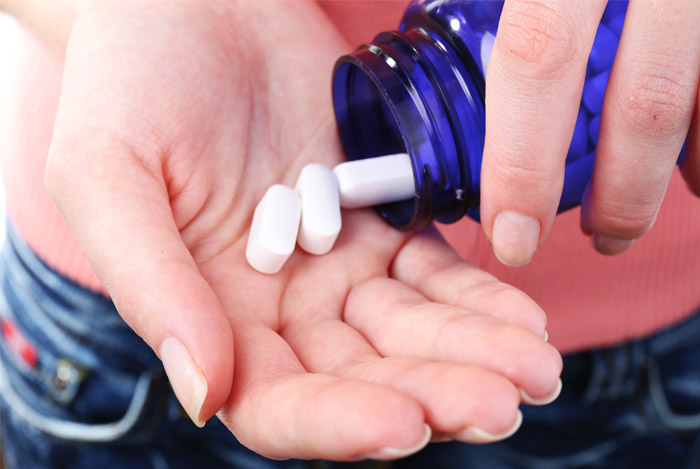 Including more calcium in your diet isn’t just about building strong bones, it’s also great for your teeth.
Including more calcium in your diet isn’t just about building strong bones, it’s also great for your teeth.
Studies have shown for decades the major benefits of calcium on the skeleton, but there had not been much research into its effects on tooth health until recently.
In a 2001 study, researchers followed more than 140 older adults for a period of five years, examining their teeth periodically. The participants were given either 500 milligrams of calcium and 700 units of vitamin D every day or a placebo.
Those participants given the actual calcium and vitamin D supplements had a 40% lower risk of losing one or more teeth.
“Now we know that supplementation may also improve tooth retention, along with routine dental care and good oral hygiene”, Elizabeth Krall, MPH, PhD, from Boston University Dental School and Tufts University Nutrition Research Center told WebMD.
3. Stay Away from Chewy, Sticky Foods
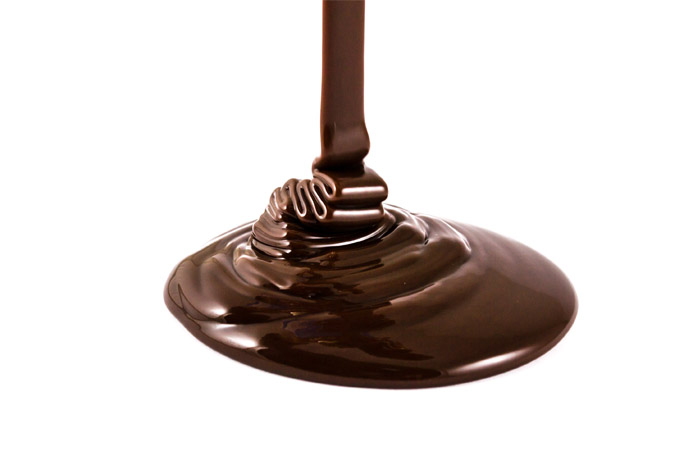 If you eat foods that take a lot of chewing before you can swallow them, they’re probably still hanging around in your teeth.
If you eat foods that take a lot of chewing before you can swallow them, they’re probably still hanging around in your teeth.
Even if you’re avoiding candy, foods like granola bars, dried fruit, barbecue sauce, and frostings or toppings like syrup, will still stick to your teeth. Because oral bacteria love eating sugar, these foods can create a better environment for them to thrive in your mouth, which can lead to tooth decay and gingivitis.
When you do eat these foods, limit your intake to just one sitting. Don’t spread out your consumption of a chewy or sticky food over the course of a day, because it’ll allow the bacteria to keep munching on the tiny little pieces in the crevices and pockets of your teeth and mouth.
4. Eat Healthier Snacks
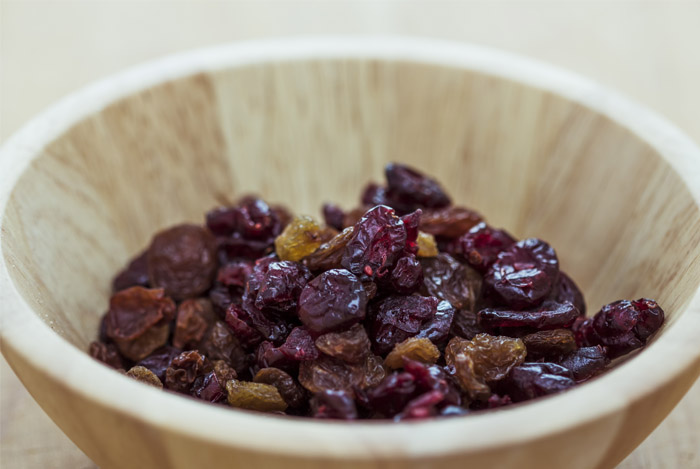 I’m well acquainted with the mid-afternoon desire for a quick snack because you’re between meals – dinner isn’t for a few more hours yet!
I’m well acquainted with the mid-afternoon desire for a quick snack because you’re between meals – dinner isn’t for a few more hours yet!
You might be at work and feel like you need a little more energy to get you through the day. So, you approach a vending machine.
Stop! Unless that machine is full of healthy goodies – doubtful – walk away. Snacks don’t have to be bad for you.
Some snacks that are good for your oral health include:
- Yogurt
- Raw almonds
- Sugarless gum
- Cranberries
- Raisins
- Cheese
But remember, always rinse your mouth well after eating snacks, especially if you eat them multiple times a day. According to the American Dental Association, it can take as long as 20 minutes after your last swallow for your enamel to stop being assaulted by those acid-producing bacteria.
5. Only Include More Acidic Foods in Balanced Meals
 Aside from the damaging acid created by oral bacteria, foods that are acidic themselves can be just as harmful to your oral health.
Aside from the damaging acid created by oral bacteria, foods that are acidic themselves can be just as harmful to your oral health.
Some of the more highly acidic foods include:
- Most fermented and aged foods
- Sodas
- Grains
- Coffee
- Meat, fish, poultry
- Orange juice and citrus fruits
- Sports drinks
- Pickled products
- Tomatoes
While a lot of these have other great health benefits, they can still be damaging to your teeth if they aren’t eaten with care and in moderation. According to The Academy of General Dentistry, you may suffer from teeth sensitivity if you have a diet high in these foods.
Sensitivity is a sign of tooth erosion, which can lead to even worse dental problems. So, when you consume more acidic foods, put some thought into how you’re ingesting them.
Ways of protecting your teeth from acidic foods include:
- Not letting acidic foods linger in your mouth. Chew and swallow more quickly.
- When you consume acidic drinks, don’t swish them around in your mouth. Swallow quickly, or use a straw so they don’t contact your teeth and gums as much.
- After consuming these foods and beverages, rinse your mouth with water to neutralize the acids.
6. Eat More Fruits and Vegetables
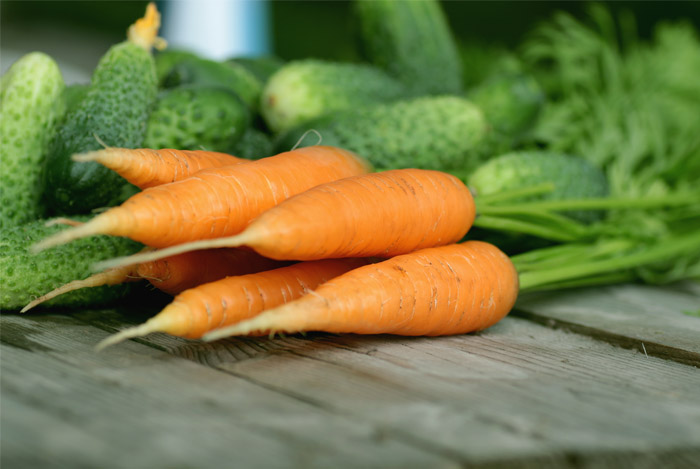 Because fruits and vegetables are so high in water and fiber, which help balance out the sugars they contain, they’re good choices if you’re looking to maintain a healthy smile.
Because fruits and vegetables are so high in water and fiber, which help balance out the sugars they contain, they’re good choices if you’re looking to maintain a healthy smile.
A lot of fruits and vegetables also help stimulate saliva production, which helps your mouth keep itself naturally clean. They also contain significant quantities of vitamin C and vitamin A, which are important for healthy gums and building enamel.
Here’s some that are the best for your health:
- Apples
- Bananas
- Pineapples
- Cucumbers
- Strawberries
- Carrots
- Watermelon
- Celery
- Garlic
Not only are these packed with vitamins, they also contain important minerals and enzymes that help break up plaque, naturally clean and whiten your teeth, and counteract tooth sensitivity and pain.
Try and include as many vegetables and fruit in your diet as you can, not just for your teeth, but for your whole body as well.
7. Chew Xylitol Gum After Meals
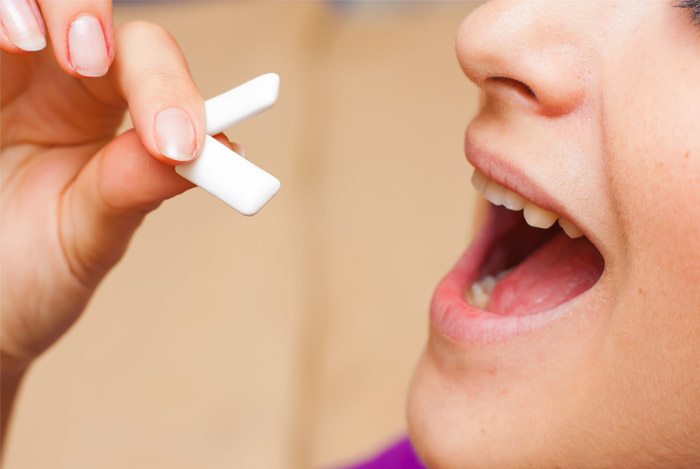 Instead of going for those minty gums that promise you fresh breath at the expense of being super sugary, chew xylitol gum.
Instead of going for those minty gums that promise you fresh breath at the expense of being super sugary, chew xylitol gum.
Xylitol is a natural sweetener made from the fibrous parts of plants that doesn’t break down like sugar, keeping the pH level of your mouth neutral. It also stops oral bacteria from adhering to your teeth.
The main reason why xylitol helps fight against oral bacteria is because they can’t eat it like they do sugar. Because of this, the number of acid-producing bacteria could fall as much as 90 percent, according to the xylitol website.
This gum can also stimulate more alkaline saliva, which means your mouth won’t be as dry, and will be naturally more effective at keeping itself clean. The calcium and phosphate in saliva can help repair your enamel, hardening it where it was growing soft.
8. Be Careful with Your Coffee
 Like most people starting their day, you probably drink a cup (or three) of coffee.
Like most people starting their day, you probably drink a cup (or three) of coffee.
Unfortunately, if you aren’t maintaining the best possible oral health by brushing and flossing after everything you eat or drink, that coffee is probably doing harm to your mouth.
Pretty much every liquid that isn’t water is going to have some pitfalls when it comes to their consumption. Coffee sticks to the teeth and the tongue, providing fuel for those oral bacteria, leading to brittle and thin teeth.
One of the best ways to limit this while still drinking your regular cup of joe is to drink it black. Don’t dump sugar packets and creamer into it! Develop a taste for the strong stuff if you care about your teeth and gums.
9. Give Up Tobacco
 While you should quit smoking for a numerous other reasons, quitting will also be better for your teeth and gums.
While you should quit smoking for a numerous other reasons, quitting will also be better for your teeth and gums.
Smoking weakens your immune system, making it harder for your mouth to fight off a gum infection. As a matter of fact, smokers have twice the risk for gum disease compared with a nonsmoker.
And, after the infection damages the gums, continuing smoking makes it more difficult for your gums to heal.
And it’s not just smoking. Consuming tobacco in all its forms – cigarettes, spit tobacco, pipes – can raise your risk for gum disease. So please, quit using tobacco.
10. Drink Green Tea (And More Water Too!)
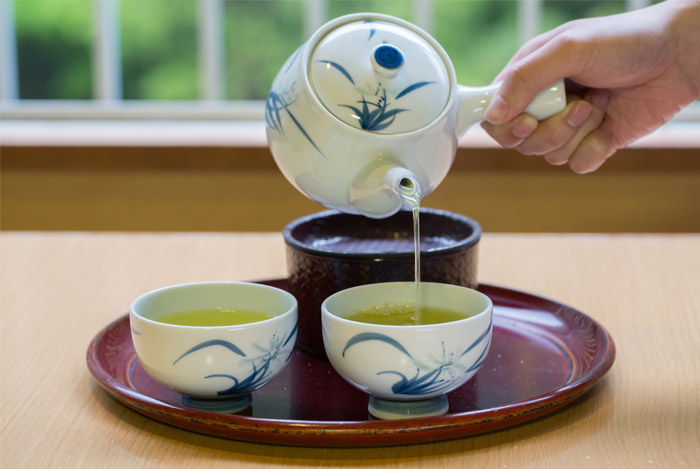 You may already enjoy green tea for its great flavor, but new research is showing its benefits for oral health.
You may already enjoy green tea for its great flavor, but new research is showing its benefits for oral health.
According to Best Health, green tea is now being linked to a few really promising findings.
- Green tea controls bacteria and lowers the acidity of your saliva, which can help prevent cavities.
- Green tea acts as an anti-inflammatory, which helps control periodontal (gum) disease. Studies have found positive results in the gum health of individuals who regularly drank green tea, better comparatively than in people who did not.
- Research has shown that men and women who drank one or more cups a day of green tea were less likely to suffer from tooth loss.
- The antioxidants found in green tea, along with its other beneficial properties, help protect against cellular damage and tumor growth. Studies have demonstrated that patients given green tea extracts slowed the progression of oral cancer of the precancerous lesions in their mouths.
- Green tea has also been shown to fight bad breath by killing off those nasty microbes that make your mouth smell terrible. The drink has been shown to outperform chewing gum, mints, and parsley-seed oil in its effects at preventing bad breath.
Aside from green tea, the best beverage you’re likely to find is plain old water. There’s a reason why most of the foods I’ve mentioned as being the best for your oral health have had high water content.
According to the American Dental Association, more than 70 years of scientific research has shown that the levels of fluoride in our drinking water are safe for our consumption and prevent tooth decay by at least 25 percent in children and adults.
Keeping your teeth and gums healthy is extremely important to your overall health. A healthy mouth is a healthy body.
Some of these tips are pretty obvious, but you may not have known the real reasons why they work.
Aside from these tips, you should definitely stick to the traditional routine of brushing and flossing as often as possible. There’s a reason why that’s one recommendation that will likely never change.
Hopefully now you’ll have some new, clearer guidelines of how you can ensure your mouth is a clean, healthy place where your pearly whites can shine bright as ever.
Do you have any secrets for a healthier smile? Let me know in the comments below!
The post 10 Nutrition Tips for Healthy Teeth & Gums appeared first on Nutrition Secrets.
http://www.nutritionsecrets.com/healthy-teeth-gums/
No comments:
Post a Comment